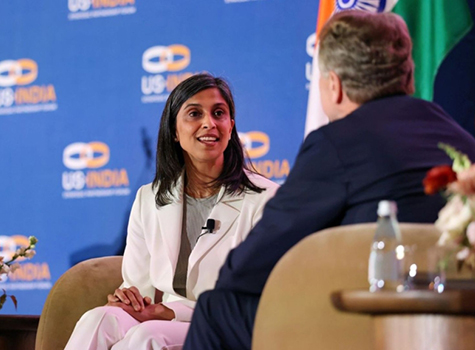
Retirement is supposed to be fun and relaxing while enjoying time with your spouse, family, grandchildren and friends. Most of the time, though, that is not what I hear when such subject comes up. The undertone of what most people say is that they wished they had prepared better for their golden years; and I am not even thinking about personal, family or health issues or other unexpected calamities at this moment because those are other big issues for discussion.
Retirement is all about preparing and saving for the future years after full-time work has stopped. But many Americans reach the retirement age finding themselves regretting the past or, more appropriately, past actions. It is a sudden disclosure to oneself, at one of those unfortunate moments that we are not ready for retirement at least financially and then the push starts to catch up. Usually, depending on how early in life we recognize our financial short comings, we can still catch up by tightening the proverbial belt but it means some serious stringent actions become necessary; that too not for a short duration but for a long time. We always want and wish to avoid that.
An article published in National Bureau of Economic Research says that almost six in ten Americans aged 50 and older wish they had saved more. Other regrets are more specific: respondents wished they had prepared better for health expenses, stayed in the workforce longer and filed for social security later. I have to say here that some of these events may not be controlled by the individual, such as staying in the workforce longer because of circumstances. But, the rest of them should be.
 The good news is that there are ways to avoid these regrettable decisions before it is too late, or even afterwards, to mitigate their consequences. From my point of view the key element here is to gaze into the crystal ball and to be able to imagine what the retirement would look like, in as much detail as possible. The point to emphasize here is that much detail needs to be worked out; just saying ‘I don’t want to have any regrets’ is not enough and is not a good definition. Much like the guest lists we make for planning a wedding where we have an inner list (a must), then the next outer list and the next one and so on we should have similar planning for retirement. Inner ‘must’ list could be as an example: travel to certain countries for a specific purpose, meet certain people you haven’t met in a long time, no home chores (lawn mowing, painting etc.). The more specific you get the more control you would have over what is needed in retirement and what you must do to achieve that. What you don’t wish to do is as important as what you do wish to do.
The good news is that there are ways to avoid these regrettable decisions before it is too late, or even afterwards, to mitigate their consequences. From my point of view the key element here is to gaze into the crystal ball and to be able to imagine what the retirement would look like, in as much detail as possible. The point to emphasize here is that much detail needs to be worked out; just saying ‘I don’t want to have any regrets’ is not enough and is not a good definition. Much like the guest lists we make for planning a wedding where we have an inner list (a must), then the next outer list and the next one and so on we should have similar planning for retirement. Inner ‘must’ list could be as an example: travel to certain countries for a specific purpose, meet certain people you haven’t met in a long time, no home chores (lawn mowing, painting etc.). The more specific you get the more control you would have over what is needed in retirement and what you must do to achieve that. What you don’t wish to do is as important as what you do wish to do.
Not Saving Enough
This is the mother of all regrets. It is my observation, at younger age most of the saving is incidental, not deliberate. It can become deliberate if you have thought about it and have a plan. Saving for retirement should start from the first day on the first job; even if it is a few dollars a month or a week or whatever. And the reason is very simple: as I have mentioned before on numerous occasions the principle of compounding is helping you when you start that early. The other choice is of course to wake up around the age of 50 when the retirement starts coming into focus and we start putting away much more for retirement just when our expenses are also going up because of a variety of reasons like children’s college education, weddings etc. The other factor that comes in the picture here is inflation. We subconsciously assume that today’s costs are going to stay the same which is never the case. Even if we assume an inflation of 3%, the prices double in just over 23 years and we certainly would live that many years in our retirement. We could well appreciate now why the Federal Reserve is trying to bring down and keep the inflation around 2%.
Social Security
For whatever the reason, 90% of the population wants to start the social security as early as possible. When asked why, the sub-conscious answer is invariably something like, “What if I die tomorrow?†What they are saying is that they have contributed all their life to this account and they are going to get it out as fast as possible.
Even though nobody can forecast the future, the chances of anyone passing on tomorrow are very small and that is not the right line of thinking. There is about 10% of the population that does need the money as soon as possible, like now, and for them it does make sense to start social security immediately but for most of the others some strategic thinking has to take place. It is in their best interest to usually delay starting SSA payments as late as possible. Of course, there is no advantage delaying it beyond the age of 70.
Retiring Too Early
Subconsciously, we are thinking the grass is greener, the sky is blue with no clouds around, water is fine and the beer is cold; I am talking about the imagined world of retirement. If you retire too early that may not be the case, at times. Lot of deliberation and calculations have to be done before such major step is taken. Especially for early retirees, there is a world of about 25 to 35 years that needs to be fathomed and mapped.
Healthcare Costs
Medicare does not cover everything and if one retires before 65 there is no Medicare and we need to find our own healthcare arrangement till then. Fidelity has estimated that a couple may spend about $300,000 over their lifetime in medical expenses including the premiums; this is directly out of your own pocket and assuming no major calamities happen. Long term care is another issue. It is estimated that 46% regret not buying LTC at the right time or not at all. LTC premiums are becoming quite prohibitive but so is the cost of not having it since medical expenses are rising at not less than 10% annually.
Many hard decisions are to be made and at the right time. That time is in the first 10 years of your working lives if not within the first year. Take charge of your retirement when you are not even thinking of it. Yes, indeed.
Mo Vidwans is an independent, board certified financial planner. For details visit, vidwansfinancial.com, call 734-476-0579 or write to: mvfinancial@yahoo.com



